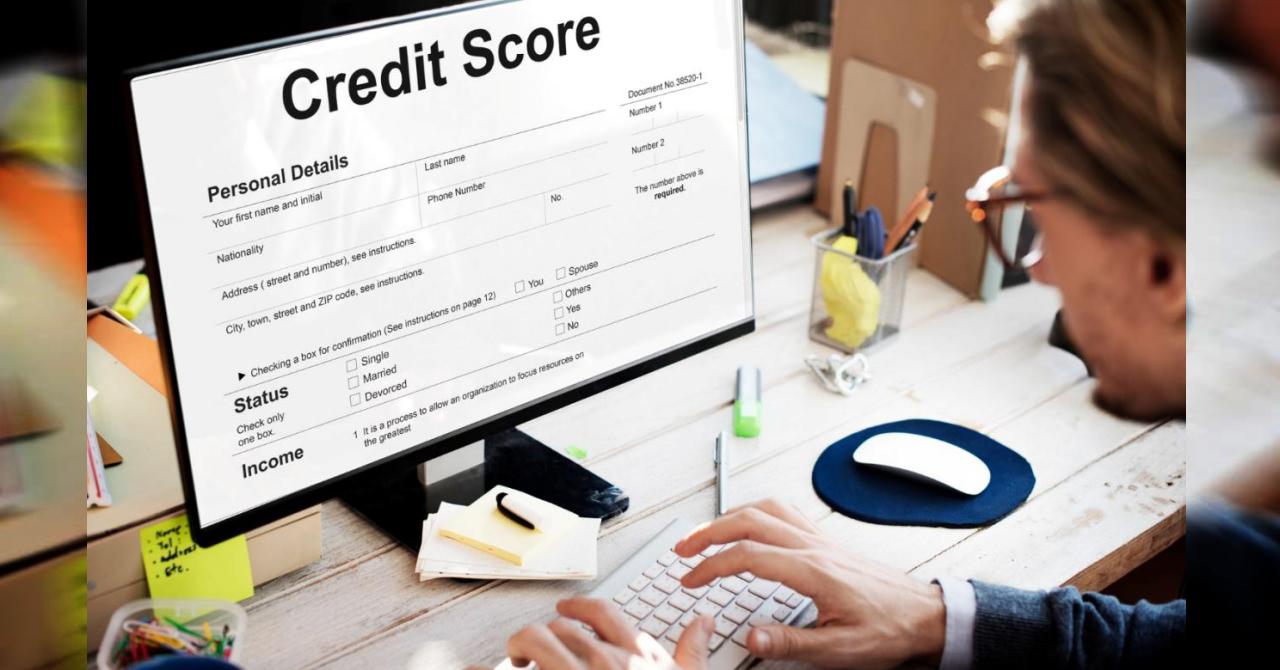If you have a credit card (or cards), you’re probably thinking about how you can check your credit score. Having a good credit score is important, especially when you are planning to apply for a loan, get additional credit, or avail of other financial products.
In this article, we will discuss how you can check your credit score, using offline and online methods. By doing so, you can find ways to increase your credit score, and ultimately increase the chances of getting a loan approved, or availing of various financial services in the UAE.

Contents
- What is a Credit Score?
- Credit Score Calculator UAE
- Requirements for Checking Credit Score
- Fees
- How to Request for a Credit Report
- How to Check Credit Score Online
- Tips for Increasing Credit Score
- Video: How to Get Credit Report and Score Online
- Frequently Asked Questions (FAQs)
- Contact Information: AECB
- Summary
What is a Credit Score?
What exactly is a credit score? Basically, this is a three-digit number that indicates your capacity to pay debts. Whenever you apply for a loan, credit card, or other financial products — banks and lending institutions use your credit score as basis for assessing your “credit worthiness.”
The credit credit score ranges from 300 to 900. The higher your credit score, the better your chances are of getting a loan application approved. With a high credit score, you could even avail of higher loan amounts, along with lower interest rates.
On the other hand, a low credit score indicates a “higher credit risk” on your part. If this is the case, the bank or lending institution may disapprove or reject your loan application, or reduce the amount of your loan.
Here in the UAE, a credit score of 300 to 619 is considered as “poor,” whereas a score of 620 to 679 is deemed as “fair.” Meanwhile, a credit score of 680 to 730 is seen as “good,” while a score of 730 and above is considered as “excellent.”
Credit Score Calculator UAE
You might be wondering, “how is my credit score calculated?” This brings us to Al Etihad Credit Bureau (AECB), a government-owned company that is responsible for issuing credit reports — including credit scores — of individuals and companies in the UAE.
AECB collects information about individuals’ and companies’ credit history, such as credit card payments, phone bill payments, loans, and mortgages, among other factors. It has been issuing credit reports since 2014, and is connected with numerous companies in the country.
Once all of these details have been collected, AECB runs an algorithm, which leads to the calculation of the credit score. As cited earlier, the credit score ranges from 300 to 900. This number can change over time, depending on a person’s financial activities.
Notably, AECB calculates the credit scores of individuals and companies. Individuals can request for their credit reports through AECB’s centres, or via online. Meanwhile, companies can get their credit reports by visiting the nearest AECB centre and bringing the necessary documents.
Requirements for Checking Credit Score
Speaking of documents, here is the list of requirements when applying for a credit report, which includes your credit score. Note that there are different requirements for individuals and for companies, as follows:
For Individuals
- Original Emirates ID card;
- Copy of passport;
- Valid email address; and
- Other documents that may be requested.
For Companies
- Valid trade license;
- Valid email address;
- Authorized signatory from the bank;
- Authorized letter from company’s manager, owner, or partner; and
- Other documents that may be requested.

Fees
Just as the required documents vary for individuals and companies, there are also differences in costs or fees. Moreover, you can opt to request for your credit score only, or ask for your credit report and credit score. Finally, the costs for requesting online and walk-in (through an AECB centre) are not the same.
For Individuals
- Credit Score — AED 10.50 (online) / AED 21 (walk-in)
- Credit Report and Score — AED 84 (online) / AED 105 (walk-in)
For Companies
- Credit Score — AED 10.50 (online) / AED 21 (walk-in)
- Credit Report and Score — AED 157.50 (online) / AED 189 (walk-in)
How to Request for a Credit Report
You can request for a credit report and/or credit score by heading to an AECB customer service centre. Simply provide your original Emirates ID card, a copy of your passport, and a valid email address. As for the fees, you can pay using credit card, debit card, or eDirham cards.
How to Check Credit Score Online
If you prefer to check your credit score online, you can either visit the AECB website, or use the AECB mobile app. Here is a step-by-step guide:
Via AECB Website
- Go to AECB official website at https://aecb.gov.ae/.
- Register and sign in to your AECB account.
- Wait for the page, “Get Your Credit Score and Report” to load.
- Select “Credit Score” and click “Buy Now.”
- Pay the fee to get your credit score.
Via AECB Mobile App
- Download the AECB mobile app on the App Store or Google Play.
- Register and log in by scanning your Emirates ID.
- Click “Get Your First Credit Score.”
- Check out and pay the fee to get your credit score.
Tips for Increasing Credit Score
After getting your credit score, you now have a better idea of whether you have higher or lower chances of getting a loan, a new credit card, or other financial services. In any case, it is always a good idea to increase your credit score. Here are some tips on how you can achieve this:
1. Pay your credit card bills on time.
Timeliness is important, especially when it comes to paying your bills, including credit card bills. If you have trouble remembering when to make payments, you can mark your calendar or set a phone reminder, so that you don’t miss a payment!
2. Pay your credit card bills in full.
Banks and lending institutions often advise customers to pay their credit card bills in full. This is one way to achieve a good credit score.
3. Follow the 30-percent rule.
Have you heard about the 30-percent rule? Basically, this means that you should not use more than 30% of your credit card limit. This is the optimum level for maintaining a good credit score and avoiding a “poor” score.
4. Manage your debts.
First of all, do not apply for several loans in a short period of time. Obviously, having multiple loans makes it harder to manage and settle them. You should also make a debt management plan by listing your loans and setting a schedule for paying them off one by one.
5. Limit your credit cards.
Although there is no direct relationship between the number of credit cards you have and your credit score, having multiple cards could affect your score negatively. So as much as possible, limit or reduce the number of your credit cards.
Video: How to Get Credit Report and Score Online
Obtaining your credit report and/or credit score is possible anytime, anywhere. Here is a video shared by the AECB YouTube channel on how you can get your credit report and score online:
Frequently Asked Questions (FAQs)
Below are some commonly asked questions and answers about credit scores:
1. What is a credit score?
A credit score is a three-digit number, ranging from 300 to 900, that indicates a person’s capacity to pay debts or “credit worthiness.” The higher the credit score, the better the chances of getting a loan or new credit card approved.
2. How is credit score calculated?
Credit reports are issued by Al Etihad Credit Bureau (AECB), which calculates credit scores by collecting information about a person’s credit history, such as phone bill payments, loan payments, mortgages, and other financial activities.
3. How to check credit score online?
Individuals and companies can check their credit scores online by going to the AECB official website at https://aecb.gov.ae/. They can also download and use the AECB mobile app for the same purpose.
4. How much does a report cost?
The fee varies for individuals and companies, as well as for online and walk-in applications. The cost for getting an individual’s credit score is AED 10.50 (online) or AED 21 (walk-in). Meanwhile, the cost for getting an individual’s credit report and credit score is AED 84 (online) and AED 105 (walk-in).
5. How can I increase my credit score?
You can increase your credit score by paying your credit card bills on time, limiting the number of credit cards, and generally managing your debts well.
6. What if there is an error in my credit report?
If you notice an error in your credit report, go to the nearest AECB centre or call their hotline by dialing +971800287328. You can also fill up a Data Correction Form through the AECB website at https://online.aecb.gov.ae/data-correction.
Contact Information: AECB
To learn more about credit scores and reports, or if you have any questions, you can get in touch with AECB through the following contact details:
AECB Abu Dhabi
Address: Emirates Real Estate Building, 8th Floor, Al Falah St., Abu Dhabi, United Arab Emirates
Telephone: +971800287328
Website: https://aecb.gov.ae/
Google Map:
AECB Dubai
Address: Rolex Tower, 25th Floor, Sheikh Zayed Rd., Trade Centre, DIFC, Dubai, United Arab Emirates
Telephone: +971800287328
Website: https://aecb.gov.ae/
Google Map:
Summary
Knowing your credit score is the first step towards better management of your credit cards, loans, and other financial transactions. Maintaining a good credit score is important, especially if you are planning to take out a home loan, apply for a new credit card, or avail of other financial services in the UAE.
DISCLAIMER: We hope that the above guide has been helpful, especially for those who are planning to apply for loans and/or credit carts. Please note that this guide is presented for general, information-sharing purposes only. To know more about credit reports and credit scores, as well as the latest updates about these matters, please visit the official websites of AECB and the UAE Government Portal.
READ NEXT: 6 Useful Ways to Avoid Credit Card Debt